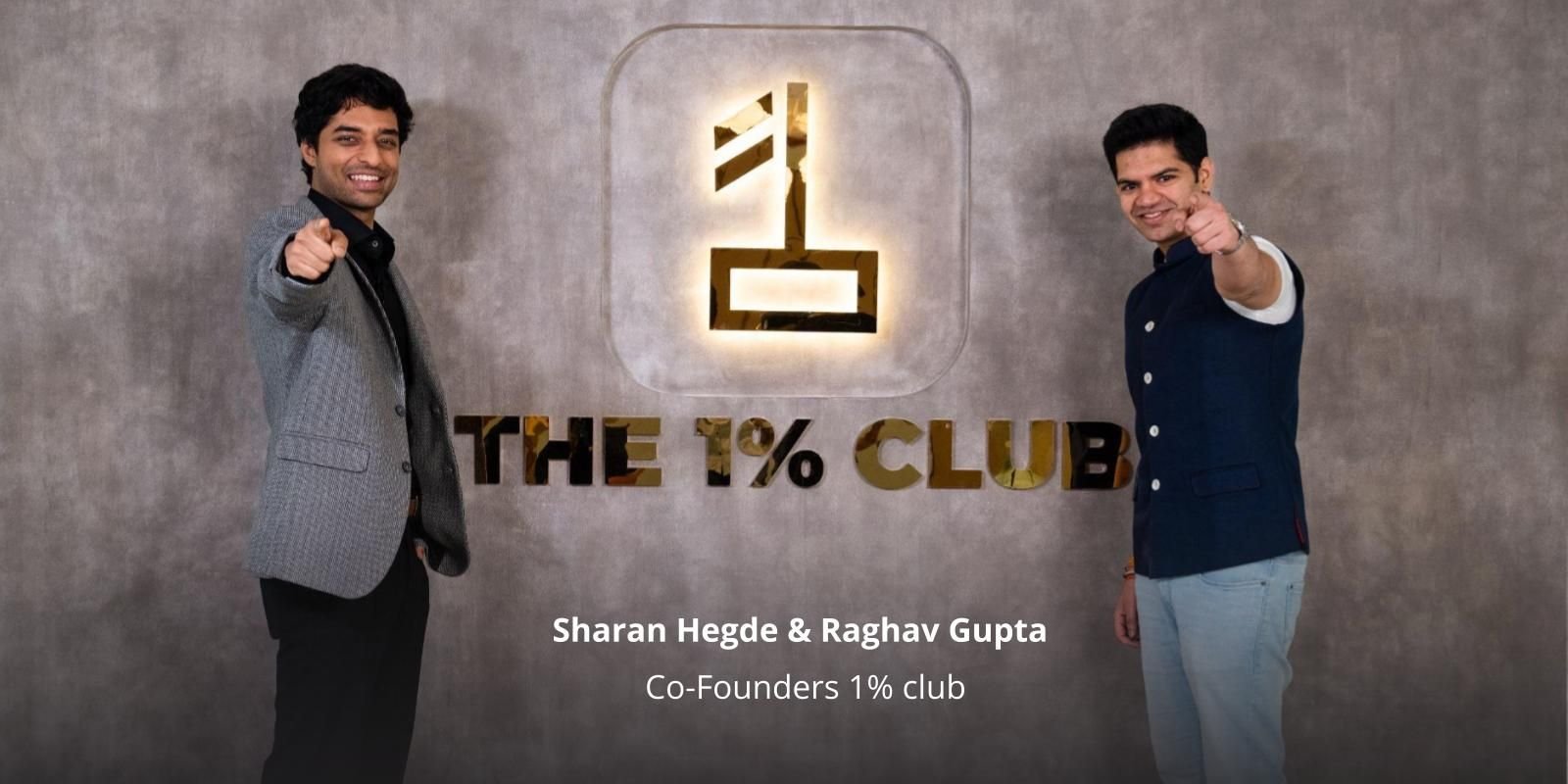[ad_1]
1% Club, the social and education platform for personal finance co-founded by finance influencer Sharan Hegde and Raghav Gupta, has expanded its offerings with the launch of financial services and products via partnerships.
The company, which offers financial masterclasses with financial experts, is now cross-selling financial products to its 60,000-odd paying members at discounted rates.
The idea is to assist members with relevant products, which they have learnt about through the masterclasses on 1% Club’s platform.
1% Club provides a comprehensive suite of financial products to its members, including insurance policies, powered by insurtech startup OneAssure, with analysis from Insurance Samadhan. It also offers loans through online lender RupeeBoss, will preparation services via Nikhil Kamath and Kunal Shah-backed Yellow Wills, and tax filing services from Quicko.
“Once you have learned the basics of insurance—such as the type of premium you should choose based on your income, family size, and other needs—the next natural step is to buy an insurance policy. We want to ensure that our members do not have to search for a suitable policy elsewhere and have direct access to it via our platform,” says Raghav Gupta, Co-founder of 1% Club.
This effort is part of 1% Club’s larger endeavour to play a more direct role in its members’ personal finance journey and expand beyond financial education.
Gupta believes that 1% Club’s tailormade content resonates with people of different occupations, personal needs, and salary groups and acts as a strong nudge for members to go ahead and purchase an insurance policy or a mutual fund scheme.
“Our communication resonates with the audience on a deeper level. It breaks it (financial concepts) down for them, and we see them converting into customers,” says Gupta.
Financial education
Although personal finance, investment, and taxation are fundamental to everyday life, these subjects are conspicuously absent from most educational curriculum, leaving many to navigate these crucial areas through trial and error. While some hire experts to manage their finances, many working-class Indians cannot afford them.
To help people obtain knowledge of the basics of investing and money management and become financially independent, 1% Club was launched in 2022 by finance influencer Sharan Hegde and Raghav Gupta.
Hedge is the person behind the popular YouTube and Instagram handle ‘Finance With Sharan’, while Gupta is the founder of AI-based skill development company Futurense Technologies.
1% Club currently offers two-hour online masterclasses, priced between Rs 99 and Rs 499. Members are also offered six-hour bootcamps on personal finance, stock market, insurance planning, credit card, and tax planning.
While 1% Club was originally conceived as an online platform, it has swiftly evolved to foster an exclusive offline community as well, to promote collaborative learning inspired by shared experiences.
Financial planning and more
Over time, the founders of 1% Club realised that, while people are interested in learning personal finance, they still don’t necessarily have the time to manage their finances themselves.
“On top of that, there’s a massive supply of financial products. Understanding these products is a hassle,” says Gupta. “Our users wanted someone to help them make these decisions,” he adds.
To tackle this challenge, 1% Clubs has launched ‘Personal CFO’—a service provided under 1% Club’s SEBI-registered sister company ‘One Centurion’.
One Centurion has a team of over 25 financial planners who help the members of the club plan their financial journey.
An expert gets on a call with the user and understands their needs. Based on the income and expenses of the customer, the financial planner helps them with insurance planning, loan planning, review of existing portfolio, and expenses review.
The comprehensive masterclasses and community experiences, coupled with Hegde’s popularity on social media, have helped 1% Club garner over 60,000 paying members over a span of 18 months. The members typically fall in the income bracket of Rs 10 lakh to Rs 20 lakh a year.
With the launch of financial products and services, 1% Club aims to offer members all that they need to manage their money.
(The copy was updated with more information.)
[ad_2]
Source link





